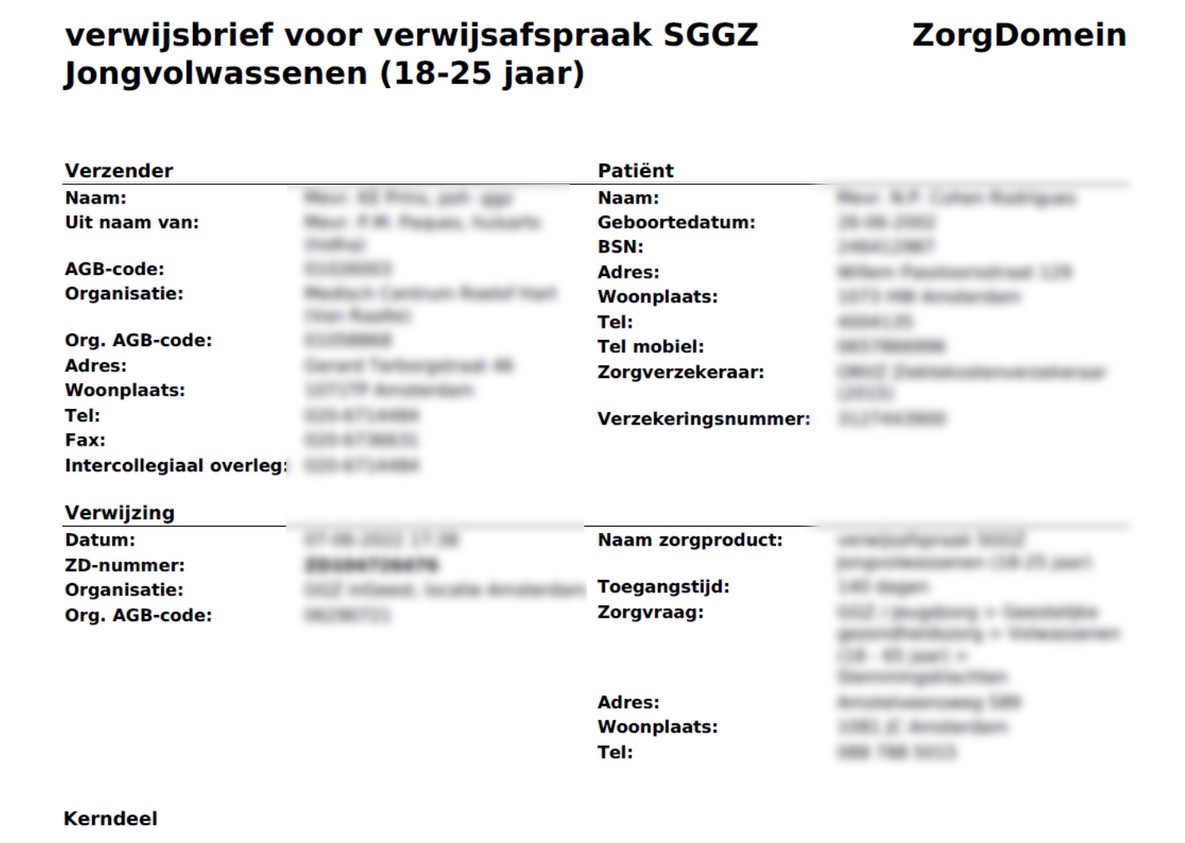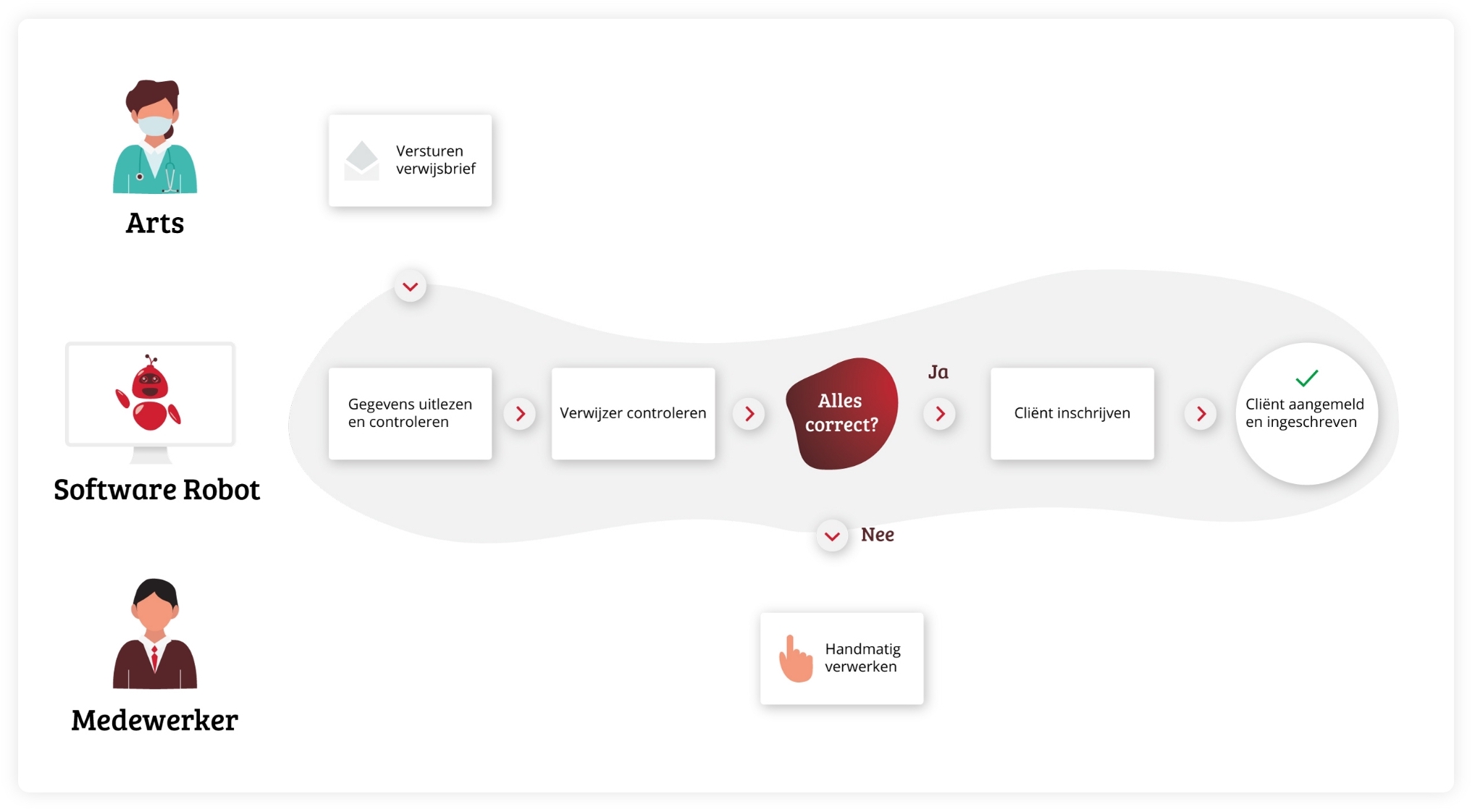Staff shortages, high absenteeism and a growing influx of clients: the GGZ is under pressure. Both in primary and care logistic processes, there is a daily challenge to meet tree norms. The heavy administrative burden between receiving a referral and the first intake interview can be greatly reduced by using RPA.
Checking referral letters, registering clients, registering, assessing and scheduling an initial intake often still requires a lot of manual work. Software robots can offer a solution across the entire healthcare logistics process, starting with the first step.
Applications
Outlook, Vektis, MijnQuarant
Saving
120 hours per month
Result
Faster processing of new clients, lower administrative burden, less worry during vacations and sick leave
The goal? Efficiency and quality
“Within 2 years to set up the administrative and care logistics processes as efficiently as possible so that the inflow through and outflow of clients can take place according to set internal and external standards.”
Automation of administrative and healthcare logistics processes with RPA leads to:
Faster
Treating clients sooner in the right department
Better information
Provide clients and practitioners with better information (understanding treatment standards IRT ZPM)
Administrative burden relief for practitioners
which benefits client contact and new inflows
Cost savings
Reduced hiring, administration FTEs & rework
Lighting of operations
at staff care ALO/ back office and more continuity
What does the software robot do?
A software robot receives client referral letters from the primary care physician by mail and reads out client data, referring physician data and preliminary diagnosis. Automated checks determine whether the client may be enrolled: does the client live within the facility’s catchment area? Is the referral letter no older than 9 months? A check in Vektis on the AGB code determines whether the referrer is authorized and the client’s basic insurance is checked via the Vecoso link present in the ECD. The robot registers the client by copying all data from the referral letter into the ECD system, obviously after first checking whether the client is already known. Finally, the robot registers the client for the appropriate care program by placing it on the waiting list.

The checklist
Software robot Geesje reads the client referral letter and performs a number of checks:
✅ Data check
✅ Lives in service area
✅ Letter <9 months old
✅ Referrer is authorized (AGB)
✅ Current health insurance
Then the software robot enrolls the client in MijnQuarant (EPD).
The process

Deploying smart automation within your healthcare facility?
We have already helped many healthcare organizations by using RPA to automate repetitive manual processes. If you want to know what processes we can automate in your department, contact Mark de Poorter. He is ready to help you.
